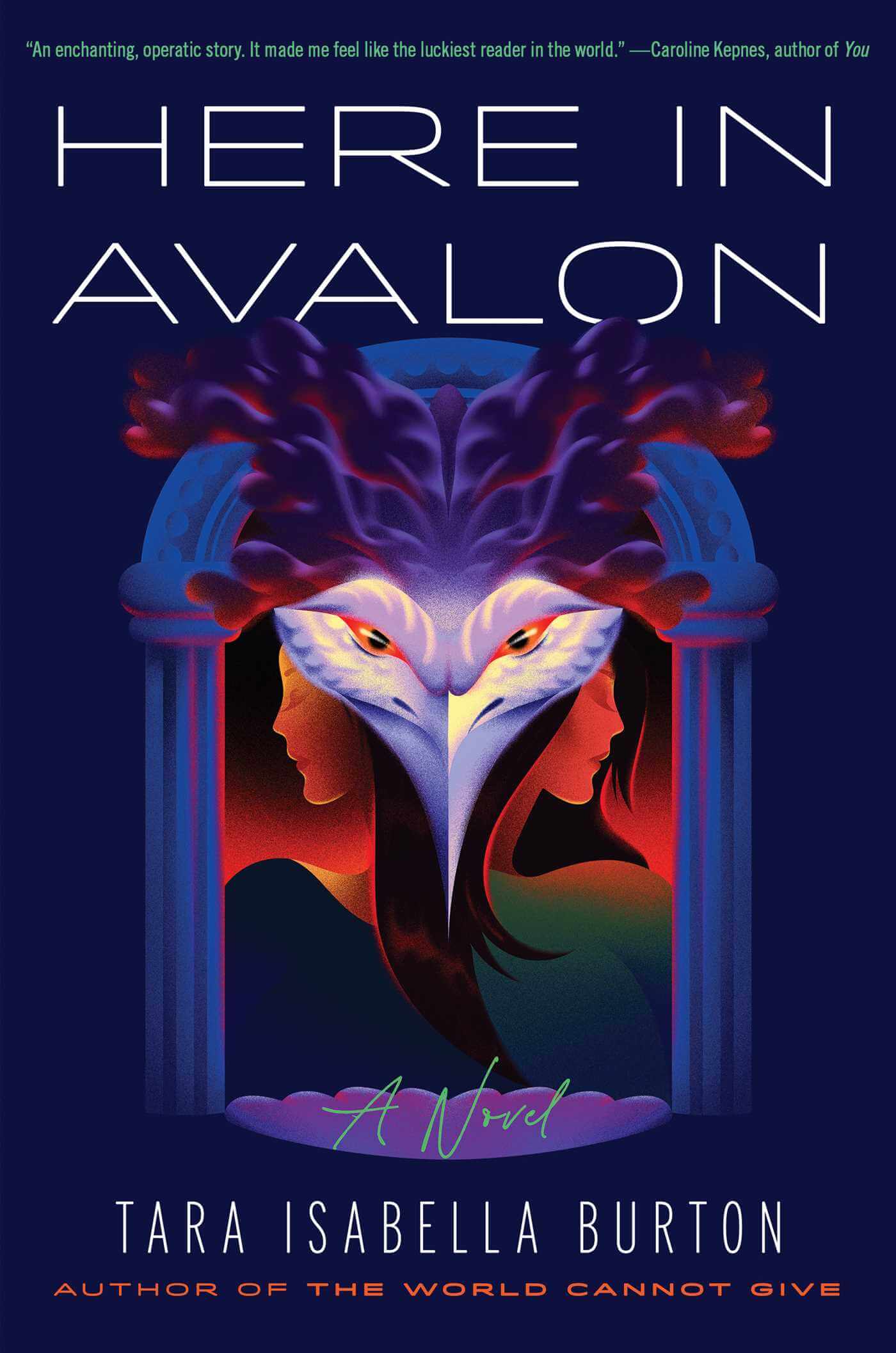You don’t choose to attend a performance at the floating cabaret, the Avalon. The Avalon chooses you. And you’re not only the guest of honor—you’re the only guest. Every song, every dance, every act is written just for you. But the invitation comes at a high price: step on board once, you risk leaving your old life behind forever.
This (imaginary) cultish cabaret is central to Tara Isabella Burton’s intriguing new novel, “Here in Avalon.” The troupe offers private shows for a ragtag collection of dreamers, seekers, and romantics. Onboard its mysterious red ship that drifts through the night around New York City, the performers treat art and glamor as spiritual concerns of the highest order.
An unexpected invitation from the Avalon threatens the deep bond of adult sisters Cecilia and Rose, who share the rent-controlled Tudor City apartment where their bohemian (now deceased) mother raised them: “The identity of the girls’ father (“fathers,” Rose always assumed) was a pleasant mystery: like the existence of God.”
The elder Cecilia is a vagabond musician who has returned to the roost after fleeing a brief failed marriage in Maine to an older English professor, Paul. He’s followed her back to the city, subletting an apartment in Red Hook and attempting to make contact.
Cecilia won’t talk to him or speak to Rose about what happened. Whatever it is, it doesn’t seem good, for Cecilia is acting out of character: picking up around the apartment, offering to cook Thanksgiving dinner, supporting herself by getting a regular gig at a neighborhood piano bar. She’s the type who never cared about a job. She always wanted “a calling.” So Rose is immediately concerned. Responsibility isn’t exactly Cecilia’s middle name.
It could be Rose’s, though. While also artistic, she has set aside the fanciful sketchbooks of her youth to make the kind of choices that look good on paper. She has a well-paying job (working as a coder developing mindfulness apps) and a dull but dependable fiancée, Caleb. (You know what happens to men like that in stories like these.)
Feeling depressed one night after a fight with Paul, Cecilia finds herself at Sunny’s Bar. While drowning her sorrows, she’s approached by a woman whose breathtaking beauty evokes a more glamorous era. It’s not a sexual advance—it’s more like attunement from a kindred spirit. In this stranger’s presence, Cecilia feels, for the first time, wholly seen and totally understood. The woman presses a business card into Cecilia’s hand with an invitation to the Avalon. To set sail, Cecilia must leave her old life behind. How much is she prepared to give up?
Rose is preparing to walk down the aisle when Cecilia disappears. Will Cecilia’s chaotic choices drive Rose off her hard-won straight-and-narrow path—or toward the kind of life she’s always been afraid to live?
A metaphysical mystery
“Here in Avalon” is a suspenseful, thoughtful and intelligent novel. Burton describes it as a “love letter to cults,” but it’s also an idealized portrait of a relationship between sisters. One’s a free spirit, and one’s a stick in the mud. Yet they respect each other’s differences and come to value them. The flighty one learns to ground herself, and the uptight one learns to let her hair down. The cult provides the means through which they transform.
I’d almost classify “Here in Avalon” as a metaphysical mystery, one that forces its characters to investigate for themselves what makes life truly worth living. It invites its readers to reflect on this as well.
For the Cecilias among us, the spirit of the novel might evoke the last lines of John Keats’ poem, “Ode on a Grecian Urn”: “‘Beauty is truth, truth beauty—that is all / Ye know on earth, and all ye need to know.’”
The novel also holds more practical charms for the Roses in our number. Its portrait of the city reflects the deep knowledge of a longtime resident. Readers of this paper will especially enjoy Burton’s gentle ribbing of the neighborhood: “Red Hook was one of those industrial and inconvenient parts of New York that nobody ever went to without a reason.” You live here, so you know otherwise. It takes a little while for some of Burton’s characters to catch on to the neighborhood’s magic. But once they get a taste of it, it’s just like what happens with any other cult: they get hooked.









